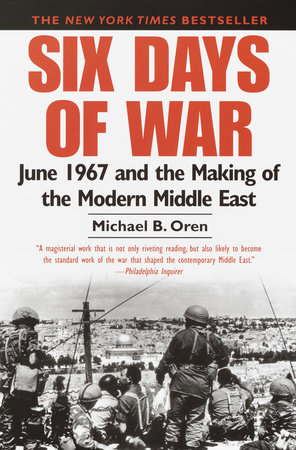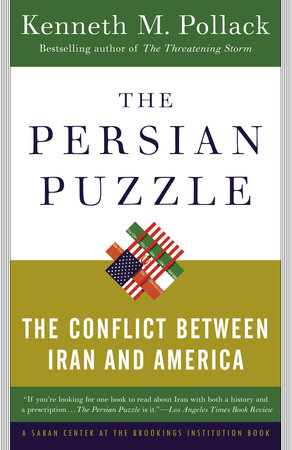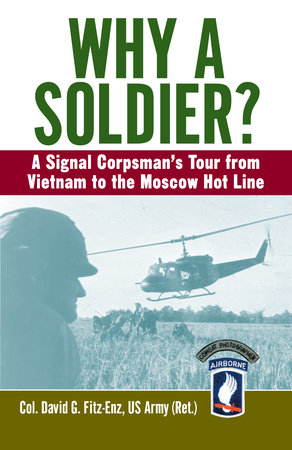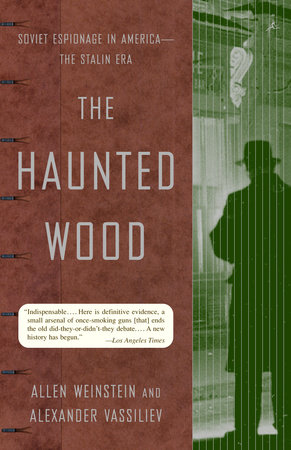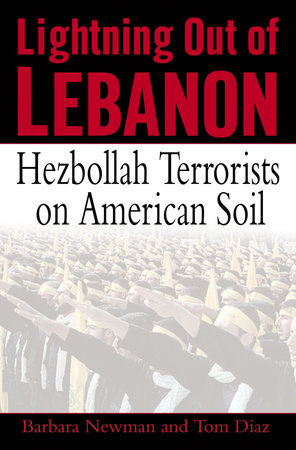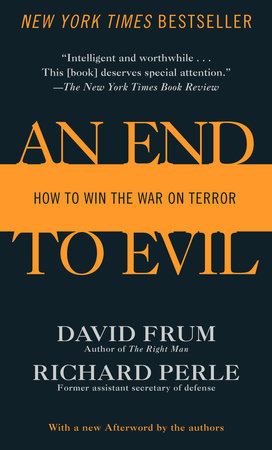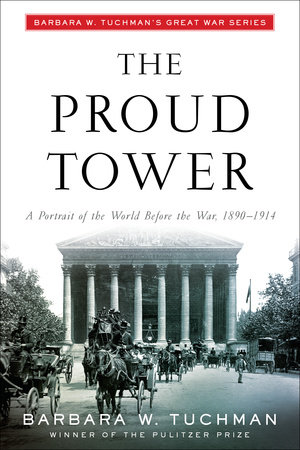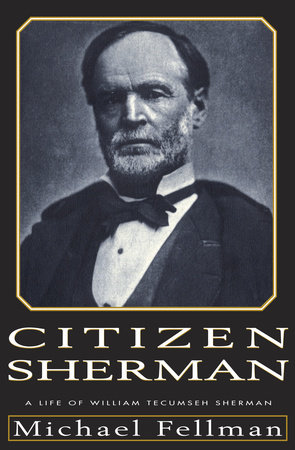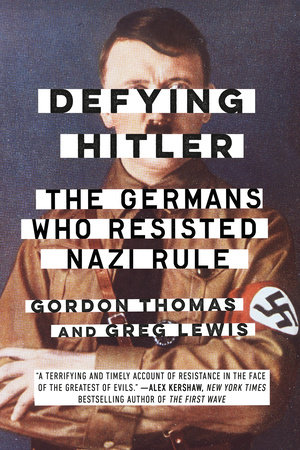Fouad Ajami is professor of Middle East Studies at The Johns Hopkins University School of Advanced International Studies and the author of The Dream Palace of the Arabs.
FOUAD AJAMI:
How old were you in June 1967?I presume you were too young for this war to be part of your formative experience. I was twenty-two then, and this was truly a great divide. Do you have early memories of this war?
MICHAEL OREN:
In 1967,I was twelve years old, very impressionable, and growing up outside New York City. It was a turbulent time throughout the United States, the time of the civil rights and antiwar movements, of the feminist and youth revolts. But no single event had a greater influence on my development, on my identity, than the Six-Day War. The beginning crisis coincided with my birthday —May 20 —and instead of celebrating, I watched as my parents cried over what they feared was Israel ’s imminent destruction. A second Holocaust was about to occur, they believed, and the world would once again witness it silently. I remember going down to our synagogue, where the entire community had gathered to pledge its fullest resources to help ensure Israel ’s survival.
Then came June 5 and the war that altered not only the Middle East but also American Jewry. Israel ’s victory, it was said, allowed American Jews “to walk with their backs straight ”and flex their political muscle as never before. American Jewish organizations that previously kept Israel at arm ’s length suddenly proclaimed their Zionism. For me, personally, the war ’s impact was especially poignant. I will never forget my father rushing to the breakfast table, waving a copy of Life.
On its cover was a photo of an Israeli soldier chest-deep in the Suez Canal, a captured Kalashnikov brandished over his head. “You see that!” he shouted. “That is what we can do!” And then he kissed the picture. Years later, I met that soldier in person —he ’s my neighbor in Jerusalem — and told him that it was because of him that I decided right then and there, in 1967,to move to Israel and take part in the drama of Jewish independence. Because of him I too, would fight in wars and struggle in the face of terror. The man listened to my story, stood, and kissed me on the cheek. He understood how the Six-Day War had profoundly changed not only my life but a vast number of lives, in the Middle East and in America.
FOUAD AJAMI:
You rightly observe that wars in history also become wars of history. Where do you see yourself in the battle of Israeli historians?
MICHAEL OREN:
For twenty years now a fierce debate has been raging over the history of the Arab-Israeli conflict, its origins, its escalation, and its wars. The controversy revolves around which party —the Israeli or the Arab —bears greater guilt for initiating and exacerbating the dispute, and for frustrating repeated efforts to resolve it.
On one side of the argument are the self-styled “new historians,” mostly Israeli Jews of a distinctly leftist or Marxist orientation, who pin the blame primarily on Israel. The Israelis, they claim, sought to deprive the Palestinians of their homeland and to provoke Arab states into wars of territorial aggrandizement. In making their case, the “new historians ”marshal documents from British, American, and Israeli archives, and apply their findings to the current conflict between Israel and the Palestinians. They strive to pass judgment on historical figures —to be, as one of their spokesmen declared,” the hangmen of history.”
On the other side of the debate are the more traditional historians who see a prominent Arab role in starting and perpetuating the conflict, who rely not only on English and Hebrew documents but also extensively on Arabic and Russian sources, and who are less judgmental of former decision makers and more inclined to examine historical events on their own merits, free of contemporary influences. The debate surrounding the history of the Arab-Israeli conflict has been one of the most vicious in all of scholarship.
Though I would place myself within the second, traditional, school, in writing Six Days of War I nevertheless sought to rise above this fray. My goal was to present a truly comprehensive narrative, one that treated both the Arab and the Israeli sides in a fair and balanced manner, to utilize all of the available sources in all of the relevant languages, and to examine the war in the historical context of 1967,and not of 2002.
Of course, no historian can be entirely objective, and as an Israeli and an American, I take strong stands on issues relating to war and peace in the Middle East. My objective, however, remained to overcome, rather than to indulge, my prejudices —to understand, rather than pass judgment on, the pivotal events of 1967.By creating a new and less polarized paradigm for the study of the Arab-Israeli conflict, I hoped to contribute to the resolution not only of the historiographical debate but ultimately of the conflict itself —to making a peace of history the peace in history.
FOUAD AJAMI:
I very much admire the serenity and the nonjudgmental quality of your observation that history is made by leaders in real time, not by historians in retrospect. In light of that, would it be fair to say that Egyptian president Nasser wanted the fruits of war but not war itself? As you put it yourself, he did not want war but only kudos. Do you see him as a tragic figure played upon by history and popular pressures?
MICHAEL OREN:
As an Israeli and as a Jew who had grown up hearing of his repeated pledges to destroy the Jewish state and to cast its inhabitants into the sea, I naturally approached the subject of Gamal Abdel Nasser with reservations. Twenty years of studying him, however, beginning with my dissertation on the origins of the Suez crisis, led me to know a more nuanced Nasser — ruthless at times, yes, and cunning, but also incorruptible, charismatic, and committed to the good of his people.
I followed the Egyptian leader ’s life from its humble beginnings through its formative experiences of the Palestine War, from Nasser ’s startling rise to power in the Free Officers ’revolution of 1952 to his rapid achievements in foreign affairs and domestic reform. I came to appreciate Nasser the man and the vision, and the reasons why both were so fervidly revered by Arabs. But I also saw the personal foibles that gradually undermined so many of his successes. These faults —egoism, and a tendency to confuse rhetoric with reality and to be swayed by public opinion —were dominating Nasser ’s decision making by the 1960s.
This is not to say that Nasser acted entirely irrationally in 1967.He felt an urgent political need to rid Egypt of UNEF ’s presence, and he moved to fulfill that need. He evicted UNEF, poured his troops into Sinai, and closed the Straits of Tiran —all while the United States and Israel watched passively and the world seemed unwilling to intervene. The Soviets supported him unreservedly. Nasser had every reason to believe that he had won a bloodless victory, a political triumph that restored him to his former ascendancy in the Arab world. A more perceptive Nasser, however —a Nasser less prone to believe his own propaganda and the misinformation supplied by his underlings, a Nasser willing to stand up to ‘Amer —would have known that the Israelis would not remain inactive indefinitely, and that when they did react, the United States would back them. He would have estimated the glaring deficiencies of his army and those of his allies, and better weathered the disappointment when those deficiencies were starkly exposed on the battlefield. Was Nasser a tragic figure? I believe he was. In history as in literature, tragic figures are those who initially show great promise and aspire to lofty goals, but who are ultimately defeated by blind ambition and serious deficiencies of character. Nasser was precisely such a figure, and his tragedy is not his alone but of Arabs and Israelis alike.
FOUAD AJAMI:
Moshe Dayan is an intriguing figure in your account, and enigmatic in many ways. He says he waited for the phone to ring from Arab leaders after the guns fell silent, but he also did not want to make territorial concessions. What was he? An opportunist? An adventurer? Was there a method, a deep core, to him?
MICHAEL OREN:
Researching great leaders in history, I get to know them quite intimately —I read their mail —with the one exception of Moshe Dayan. The more I studied him, it seemed, and the less I felt I knew him. He was a man of utter contradictions —passionate and cold, creative and close-minded, fearless and fainthearted —with a mind capable of holding not only two but many opposing opinions at once.
These qualities alternatively infuriated and delighted the people around Dayan, instilling in them both admiration and contempt. On historic decisions such as whether or not to conquer the Old City of Jerusalem or the Golan Heights, he went from abject opposition to unqualified support literally within hours. Later, on questions of peace, he resisted territorial concessions, but also returned the Temple Mount/Haram al-Sharif in Jerusalem to the Muslim authorities and offered to withdraw Israeli troops from the Suez Canal in return for an Egyptian pledge of nonbelligerency.
The key, ultimately, to understanding Dayan resides in his prodigious ego. He, and nobody else, would give the command to enter the Old City. He, and not the Israeli government, would sanction capturing the Golan. And he alone
would determine the governance of a site holy to three major religions. As a figure in history, Moshe Dayan leaves an ambiguous legacy, and as an historian, I remain ambivalent toward him. He was a leader of a caliber virtually unknown in the Middle East today, the architect of Israel ’s greatest military victory and its later peace treaty with Egypt, but also an expert at political machinations and naked displays of power. Hidden behind his trademark eye patch was a mind as enigmatic as it was inaccessible.
FOUAD AJAMI:
The Six-Day War represented the end of the legend of Egypt in Arab life, it has been said. Do you think that Egypt has ever recovered from the bleakness of that defeat?
MICHAEL OREN:
Of great political changes wrought by the 1967 war, few were as traumatic and as momentous as the collapse of Nasserism.Beginning in July 1954,when Nasser officially declared Egypt an Arab country, Egypt conducted an ambitious campaign to unite the Arab world —to realize the dream of pan- Arabism —under its leadership.
Nasser ’s efforts, building on the widespread understanding of Egypt ’s historically central role in regional politics, fired the imaginations of Arabs from the Atlantic to the Persian Gulf. Egypt ’s union with Syria, from 1958 to 1961, seemed to augur a new and cohesive future for the Arab world. But the union dissolved, and another attempt to link up with Iraq similarly foundered, and by 1967,the dream had all but faded. The final blow came on June 5,when the vision of Arab unity was left smoldering among the wrecks of hundreds of Egyptian planes and tanks. Egypt ’s defeat opened the door to new and compelling ideologies in the Middle East. Palestinian nationalism rose to the fore, and the PLO under the leadership of Yasser Arafat became a dominant force in Arab politics. More influential still was the rise of Islamic extremism, which also sought to unify the Arab world, albeit as a part of a global Islamic nation, on the basis of common Muslim identity. Here, too, Egypt played a central role as the home of the most powerful purist movement, the Muslim Brotherhood.
In the post-1967 era, and certainly after the 1973 war, Egypt began to play a different role in Arab and Middle East politics —no longer the leader in waging war but the forerunner in the search for peace. The transition was championed by Anwar Sadat,Nasser ’s successor, and to this day, Egypt ’s stature is a product not of its military force, prodigious though it remains, but of its potential contribution to regional stability and, ultimately, to peace.
FOUAD AJAMI:
As a historian and an Israeli, have you ever allowed your imagination to conjure up what a defeat would have meant for Israel in the Six-Day War?
MICHAEL OREN:
I read Robert Littell’ s If Israel Lost the War (New York: Coward McCann, 1969) as a teenager, and it left me sleepless for nights. In vivid prose, the author describes endless columns of burned-out Israeli tanks and trucks, thousands of destitute Israeli POWs, and widespread massacres of Jewish civilians. Especially haunting for me was the final chapter in which Nasser ’s helicopter flies over the ruins of Tel Aviv, and Moshe Dayan is placed in front of a firing squad. Defeat for the Israelis might have yielded less apocalyptic results, of course. Failure to react at all to the Tiran blockade would have constituted a severe political defeat for Israel, as would a military confrontation that ended in a standoff like that of 1973.The fact remains, however, that Arab armies in 1967 were poised to inflict existential damage on the Jewish state. The vast array of Arab forces on all of Israel ’s borders, combined with the anti-Zionist frenzy sweeping the Arab world produced a momentum for Israel ’s destruction that no Arab leader could resist. Irrespective of their specific goals in the war, neither Hussein nor Nasser had the power to rein in their forces once they vanquished the Israel Defense Forces and occupied Israeli territory.
In the 1948 war, for example, while a large Arab population remained within Israel, no Jews were allowed to stay in any areas conquered by the Arabs. Defeat, then, for Israel was simply not an option in 1967,and that realization informed its decisions throughout the crisis, both in the cabinet room and on the battlefield.
FOUAD AJAMI:
The war ’s legacy, you say, is equivocal. I am reminded here of something the late Chinese premier Zhou En-Lai said when asked about the significance of the French Revolution of 1789:“It ’s too soon to tell,” he answered. Nearly four decades later, is it still too early to tell what the legacy of the Six-Day War is?
MICHAEL OREN:
In addition to Israel ’s conquest of vast stretches of Arab territory —much of which remains a source of controversy —the 1967 war had several political results that profoundly altered the Middle East.
There was, as mentioned earlier, the collapse of secular pan-Arabism and its replacement by Islamic extremist ideas, the rise of Palestinian nationalism, and the acceleration of the Middle East arms race. On the Israeli side, the war inaugurated Israel ’s strategic partnership with the United States, richly arming the IDF with American weaponry and according Washington far-reaching control over Jerusalem ’s policies. Reunited with its biblical homeland in the West Bank (Judea and Samaria),Israel became more “Jewish,”spawning Messianic nationalist groups such as Gush Emunim,as well as the secular leftist movements that opposed them.
In spite of these momentous changes, it is nevertheless too early to pass judgment on the war ’s final legacy. Whether the West Bank and Gaza will form the basis of an independent Palestinian state, whether Israel will return the Golan Heights to Syria in exchange for a full peace treaty, whether Islamic radicalism will sweep the Arab world and trigger another and potentially bloodier Arab-Israeli war —all that is yet to be seen. Though one can posit that it is always premature to decide the ultimate impact of any historic events —we are still witnessing the consequences of World War II —the consequences of the 1967 war to this day remain alarmingly fluid and volatile.
FOUAD AJAMI:
King Hussein, one of your rich cast of characters, died in 1999.Is it fair to say that the man had no choice in 1967:It was either war with Israel, or civil war within his own country and the possible destruction of his dynasty? He lost the West Bank but saved his realm. What do you think?
MICHAEL OREN:
Hussein faced a terrible dilemma in 1967.If Nasser went to war against Israel and Hussein failed to join him, and if Nasser lost the war, then Jordan ’s Palestinian majority would accuse the king of treason and kill him. But if Nasser won the war against Israel and Hussein failed to join him, then the victorious Egyptian forces would proceed through Israel and march on Amman, where Nasser would kill the monarch. To escape this bind, Hussein came up with what he believed was a viable solution: Abrogate all responsibility for the crisis and place Jordan ’s army under direct Egyptian command.Thus,on June 1,the Egyptian general Riad arrived in Jordan to take control of Hussein ’s military. The scheme seemed to be succeeding when, on June 5,in response to wildly inaccurate reports from Cairo regarding the course of the fighting, Riad ordered Jordanian forces to attack. Having repeatedly petitioned Hussein not to join the fighting, Israel responded with a counterattack that, within forty-eight hours, left most of the West Bank and all of Jerusalem in Israeli hands. Hussein also allowed himself to be carried away by the war fever —albeit briefly —but he quickly awakened to the hopelessness of Jordan ’s military situation. Ultimately, it was Hussein ’s untenable position —a function less of the Arab-Israeli conflict than of the Arab cold war —that made Jordan ’s loss of the West Bank, and of Jerusalem, unavoidable.
FOUAD AJAMI:A book of historical research so close to a historian ’s own world changes the historian and his or her outlook. Could you let your readers in on one or two changes in your outlook that happened by the time the work was completed?
MICHAEL OREN:
Prior to my work on the 1967 war, I believed the politics in the Middle East —as elsewhere in the world —were the product of rational decision-making, a reflection of cogent analyses on the part of Arab and Israeli leaders. Today I know differently. Of all the insights I gleaned from my research —the extent of Egyptian war planning, for example, or the depth of Israeli fears —none altered my thinking more than the realization that politics in the Middle East are, more often than not, random and unpredictable, arbitrary in their course and potentially explosive in their outcome.
The deeper I delved into the sources, the more I came to view the Middle East in 1967 as a context of conflict. And in such an unstable and volatile context, it did not take much —a single spark —to ignite a regional conflagration. Such a spark was indeed kindled by Israel ’s raid on the West Bank village of Samua six months before the war, in November 1966,an incident that touched off a chain reaction of events culminating in Israel ’s preemptive strike that June. But even if the Samua raid had been averted, some other event would have triggered the war, so combustible was the atmosphere in the Middle East at the time. Today, more than thirty-five years later, the region remains cast in context of conflict every bit as flammable as that which existed in 1967 —if not more so.
Think: In confronting a Middle East crisis today, who could the U.S.president hotline —Osama bin Laden? The peculiar stability of the bipolar Cold War has disappeared, to be replaced by numerous and far less responsible unconventional powers.
Moreover, were war to break out in the Middle East today, it would not be a classic contest between regular armies fought for the most part in the desert, far from population centers, but rather a ballistic exchange involving a variety of
warheads, conventional and nonconventional, aimed at Middle Eastern cities. That revelation about the context of conflict and its catastrophic potential has had an immense impact on my political thinking. War in the Middle East
must at all costs be averted, but by standing up to, rather than mollifying, terror. The context of conflict must be defused, gradually but unstintingly, by guaranteeing basic human rights —above all, women ’s rights —to all the region ’s inhabitants. Only then, with deterrence restored and freedom implanted, can Arabs and Israelis, together with the many other Middle East protagonists, begin to address the core issues dividing them. Only then can the universal prerequisites of peace —mutual respect and empathy —take root.
FOUAD AJAMI:
Yitzhak Rabin won the territories of the West Bank and Gaza in 1967,and sought partition in 1992 –93.Will his legacy be vindicated in the years to come,or are Israelis and Arabs —more precisely Israelis and Palestinians —doomed to more warfare?
MICHAEL OREN:
Yitzhak Rabin ’s legacy will be vindicated once the Palestinians —and with them, the rest of the Arab world —reconcile themselves to the existence of a sovereign Jewish state in the Middle East. Today, a solid majority of Israelis have abandoned the notion of a Greater Israel, and support the creation of a Palestinian state, even at the cost of removing settlements from the West Bank and Gaza. They recognize the reality of a Palestinian people that has suffered injustices in the past and that enjoys a legitimate claim to part of the territory Israelis regard as their historical and spiritual homeland. The Palestinians, however, have yet to reciprocate that recognition. Many still deny that a Jewish people exists, that a Holocaust occurred, or that Jews have lived in the land for centuries.
Once that recognition emerges —once the Palestinian leadership ceases to educate Arab youth for rejection and armed conflict and instills in them the principles of democracy and mutual respect —then most Israelis will vote to
withdraw from virtually all of the territories and for generous concessions in Jerusalem as well. Until that happens,unfortunately, no arrangement, whether imposed by the international community or negotiated by Israeli and Palestinian representatives lacking in grassroots support, can succeed. Peace must be built from the bottom up, and until the groundwork for that edifice is laid, violence in the Middle East is almost certain to continue.
FOUAD AJAMI:
Is the Arab rejection of Israel today deeper or more amenable to resolution than it was in 1967?
MICHAEL OREN:
In its attitudes toward Israel, the Arab world today is starkly divided between rulers and the ruled. With few exceptions —Libya, Iraq —Arab governments for the most part accept the notion of negotiating with Israel and talk in terms of future peace arrangements. The leaders of Egypt and Jordan have signed such treaties already and regularly assert their commitment to them.
Arab public opinion, by contrast, is staunchly opposed to any form of recognition of Israel and highly supportive of military measures against the Jewish state.Anti-Zionist propaganda dominates the Arab press and poisons Arabic school textbooks. In Egypt, where the state-run television recently broadcast a multipart movie based on the Protocols of the Elders of Zion, a vicious anti-Semitic forgery, the number-one hit song was “I Hate Israel.” Forbidden by dictatorial regimes to voice political ideas on any subject but Israel and increasingly driven by the lack of basic freedoms to seek Islamic solutions to their problems, Arab populations remain as anti-Israel as they were in 1967.
Altering this situation, generating a readiness for genuine peace and reconciliation, will require a long-term and concerted process of democratization in the Middle East —democracies, historically, rarely make war on one another — and the opening of Arab society to notions of free expression, elected governments, and women ’s rights. Only then, with the emergence of a strong middle class with a vested interest in stability and a society capable of debating the pros and cons of peace, can a real end to the Arab-Israeli conflict be contemplated.
FOUAD AJAMI:
With your research, you place yourself on that seam between Israelis and Arabs. Based on information from the archives, from the debates, do you think these antagonists know enough about each other?
MICHAEL OREN:
Among the causes of the 1967 war, ignorance was perhaps the most prominent. The Israelis failed to anticipate the degree to which inter-Arab rivalries and Soviet machinations could prod Arab states toward war, and Arab leaders failed to anticipate Israel ’s readiness to preempt that process militarily. Israeli decision makers were convinced that Nasser sought to destroy the Dimona reactor —the documents prove that he did not —while Nasser believed that Israel would reconcile itself to the loss of free shipping to Eilat. Though one might expect the Israelis, with their formidable intelligence services and cadres of trained Arabists,to be better informed about their neighbors, the Israeli files reveal a shocking unawareness of political currents and power relationships on the Arab side. The relationship between Nasser and Amer, for example, a major determinant in Egyptian policy, was virtually un-known to the Israelis. By the same token, Arab sources abound with myths about the nature of Israeli politics and society. Not a single Arab writer of the 1960s grasped the dynamism of Israel ’s democracy or gauged the military might that democracy could field.
It remains to be seen whether, nearly four decades and as many wars later, Arabs and Israelis have become better acquainted. Though the advent of modern communications promises to expand such mutual knowledge, in the Middle East the media often serve to spread falsehoods and deepen ignorance. In the end, there is no substitute for face-to-face personal encounters between Arabs and Israelis. Borders of hostility must be broken down before those of peace can arise.
